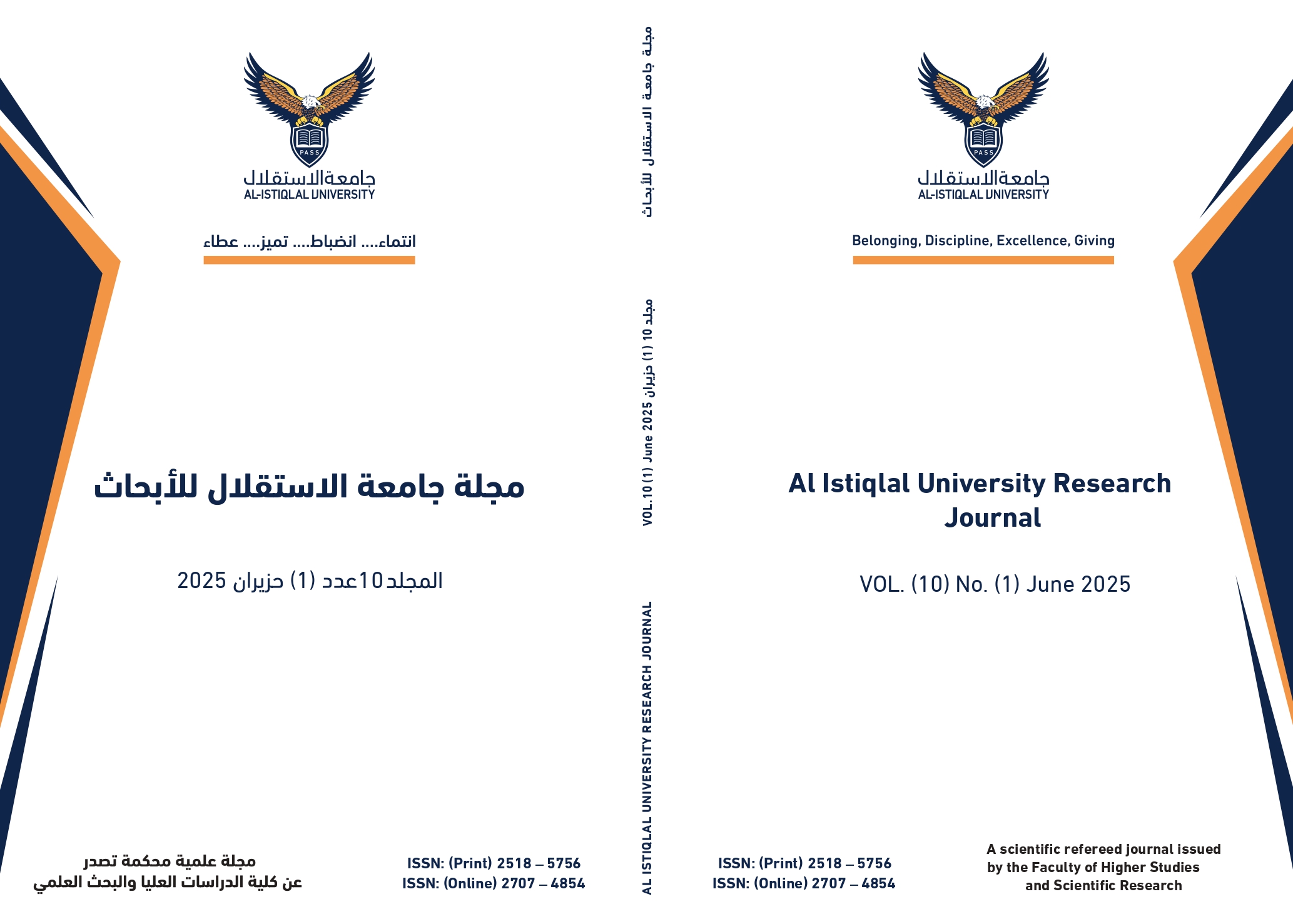Abstract
The study aimed to evaluate the effectiveness of performance appraisal systems used to enhance the performance of faculty members in Palestinian public higher education institutions. This was done through analyzing the tools and models adopted for performance evaluation and identifying challenges impacting the achievement of these systems' objectives. The researchers employed a descriptive analytical methodology to examine the evaluation models used in government universities, which focus on four main areas: teaching performance, research performance, institutional service, and community service. The study's findings highlighted several weaknesses in the current models, including an over-reliance on quantitative assessments at the expense of qualitative evaluation, a lack of transparency and detail in the evaluation process, insufficient consideration of disciplinary differences among faculty members, and inadequate focus on innovation and community engagement. The researchers offered several recommendations to improve the evaluation systems, such as redistributing weightings to cover all aspects of performance more equitably, enhancing qualitative assessment through detailed and continuous feedback, incorporating multi-source evaluations that include peer and student input, and simplifying grievance procedures to increase their effectiveness. The study also emphasized the need to integrate criteria related to innovation and continuous professional development, aiming to improve the quality of higher education and foster an academic environment that aligns with the goals of higher education institutions and encourages faculty development and excellence.

This work is licensed under a Creative Commons Attribution-ShareAlike 4.0 International License.
Copyright (c) 2025 Al Istiqlal University Research Journal




